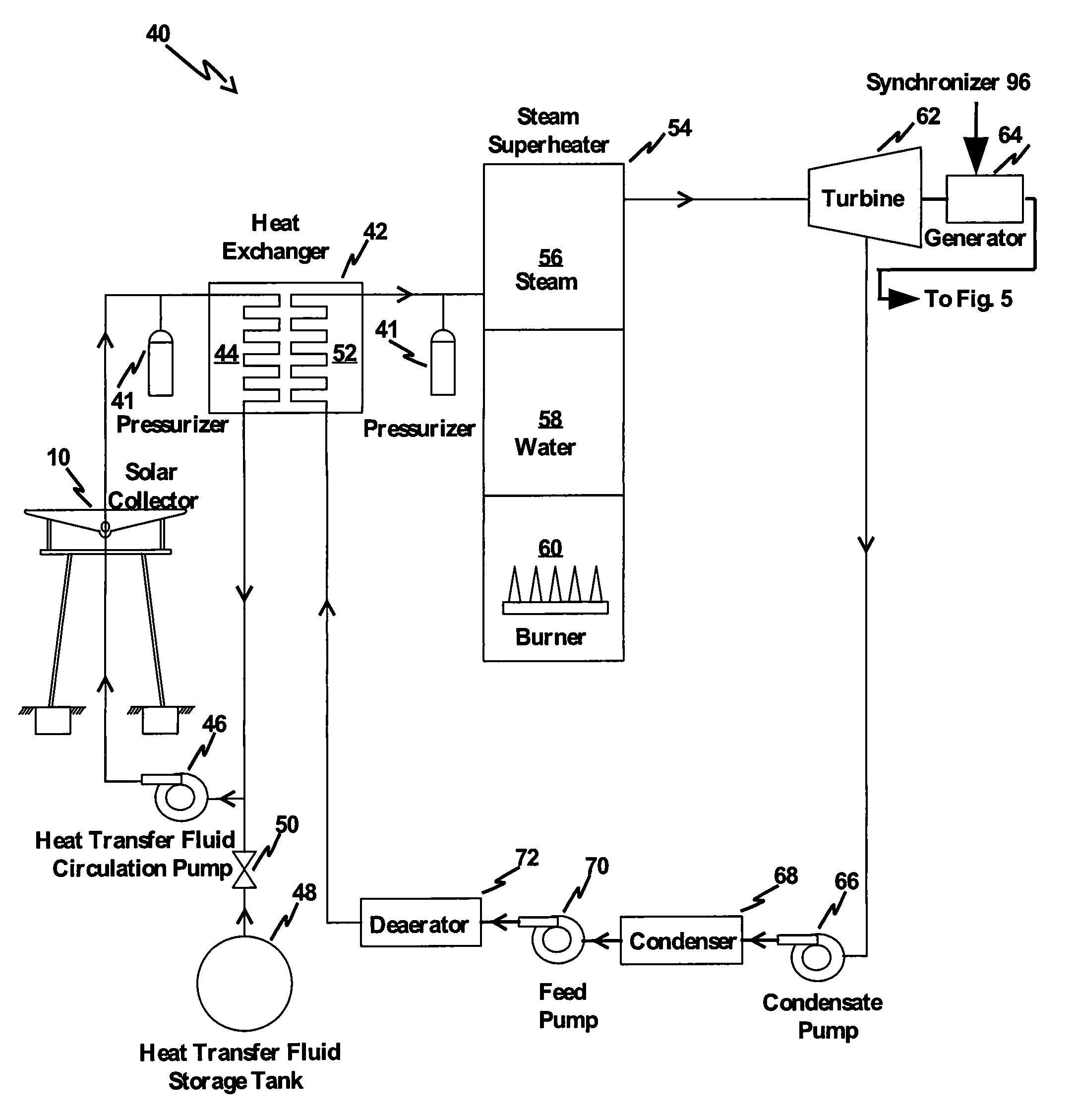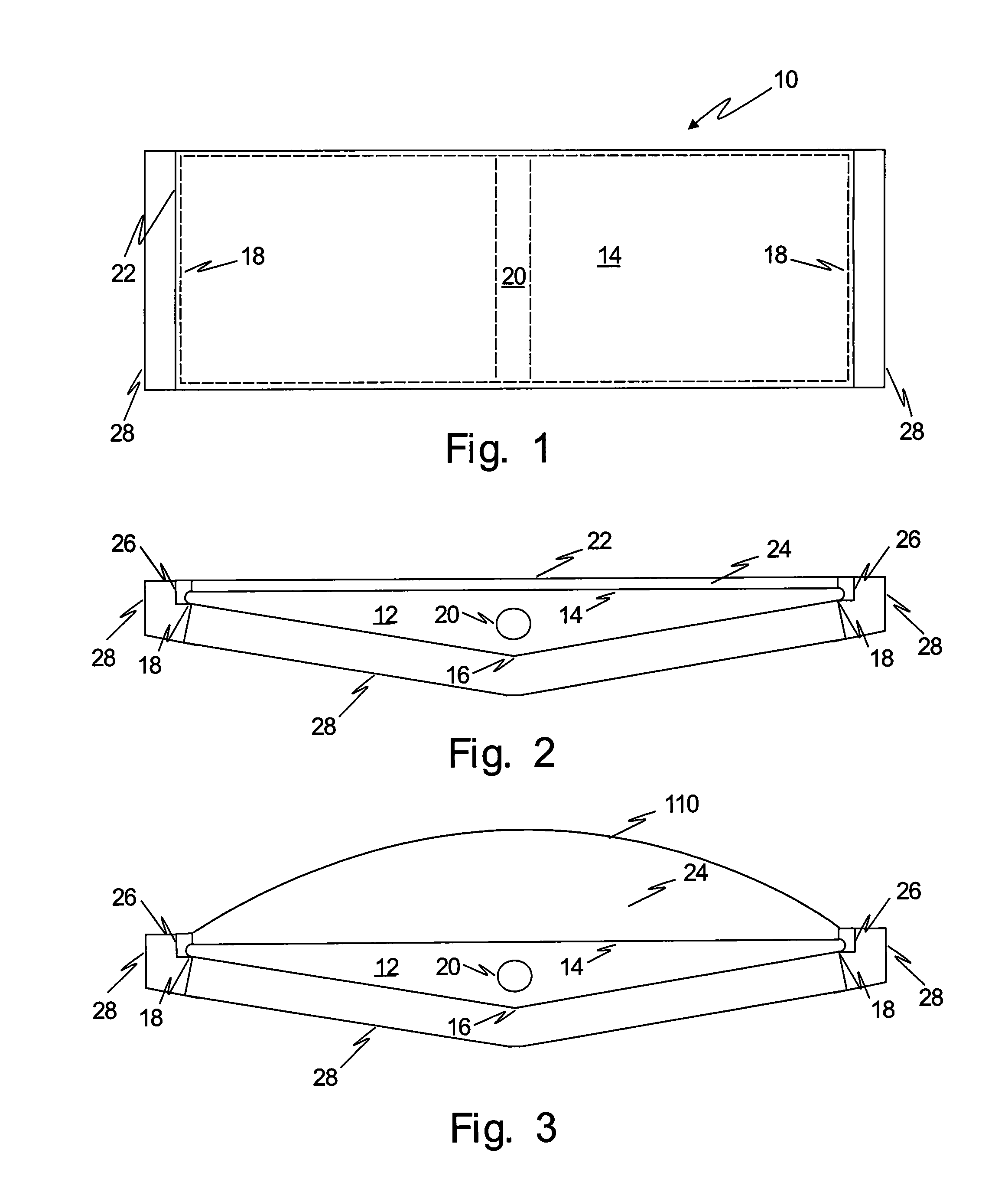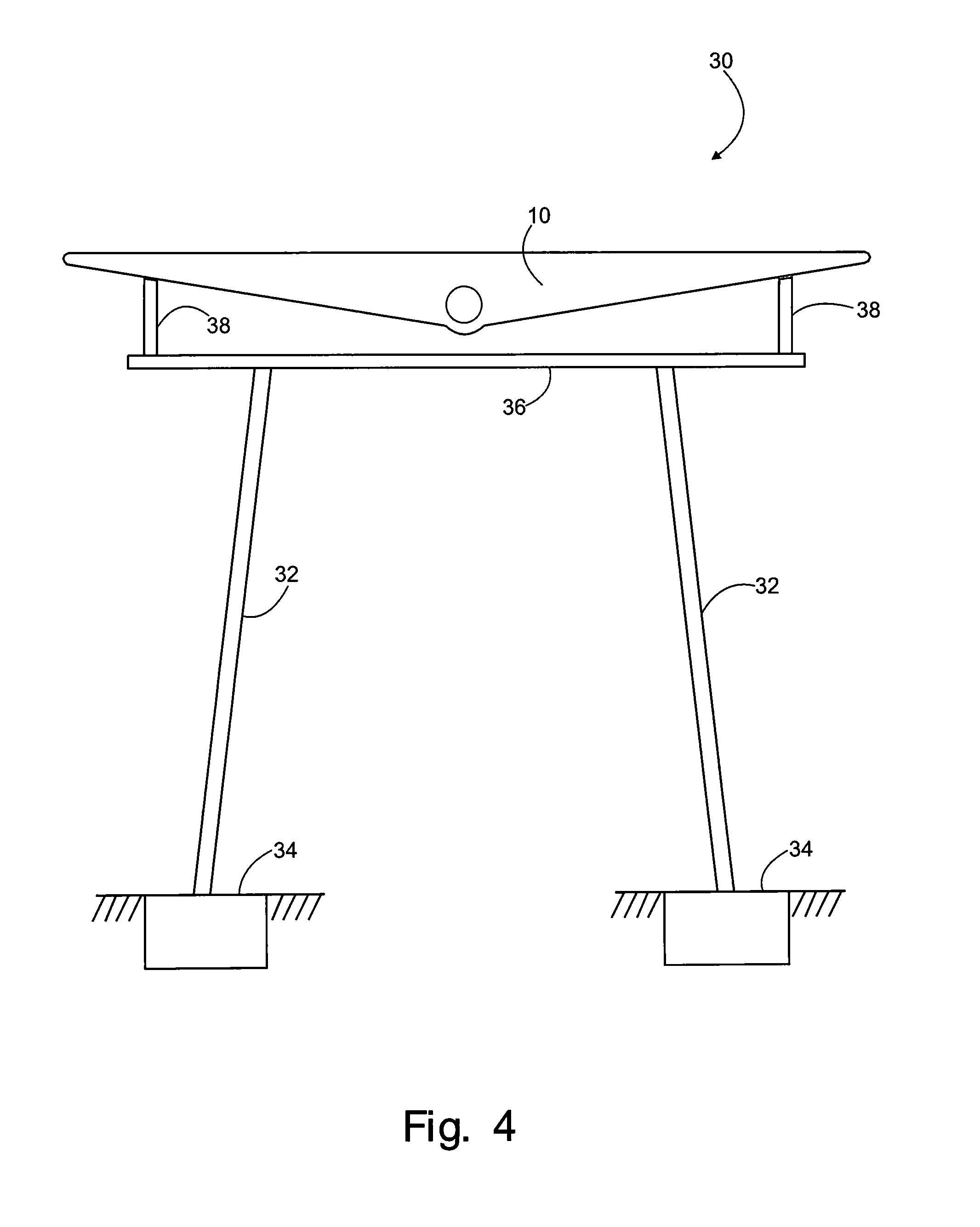Dual energy solar thermal power plant
a solar thermal power plant and dual-source technology, applied in the direction of machines/engines, heat collector mounting/support, light and heating apparatus, etc., can solve the problems of unsatisfactory expectations, extreme dry air, bankers hesitant to commit capital to solar power plant projects, etc., to achieve low plant cost, reduce fuel cost, and build in a relatively short time
- Summary
- Abstract
- Description
- Claims
- Application Information
AI Technical Summary
Benefits of technology
Problems solved by technology
Method used
Image
Examples
Embodiment Construction
[0098]Persons of ordinary skill in the art will realize that the following description of the present invention is illustrative only and not in any way limiting. Other embodiments of the invention will readily suggest themselves to such skilled persons. Referring first to FIGS. 1 and 2: The diagrams show top and cross-sectional views, respectively, of an illustrative solar energy collector 10 in accordance with one aspect of the present invention. FIG. 3 shows the solar collector cross-sectional view if an arch type glass is used instead of a flat one as shown in FIG. 2.
[0099]The solar energy collector 10 comprises a solid body 12 having a substantially flat planar solar energy absorbing collecting surface 14. The body 12 is formed from an efficient heat conductive material, yet the cost is low enough to make the power plant feasible. The planar solar energy absorbing collecting surface 14 should be configured to maximize energy absorption. In some embodiments of the invention, the ...
PUM
 Login to View More
Login to View More Abstract
Description
Claims
Application Information
 Login to View More
Login to View More - R&D
- Intellectual Property
- Life Sciences
- Materials
- Tech Scout
- Unparalleled Data Quality
- Higher Quality Content
- 60% Fewer Hallucinations
Browse by: Latest US Patents, China's latest patents, Technical Efficacy Thesaurus, Application Domain, Technology Topic, Popular Technical Reports.
© 2025 PatSnap. All rights reserved.Legal|Privacy policy|Modern Slavery Act Transparency Statement|Sitemap|About US| Contact US: help@patsnap.com



